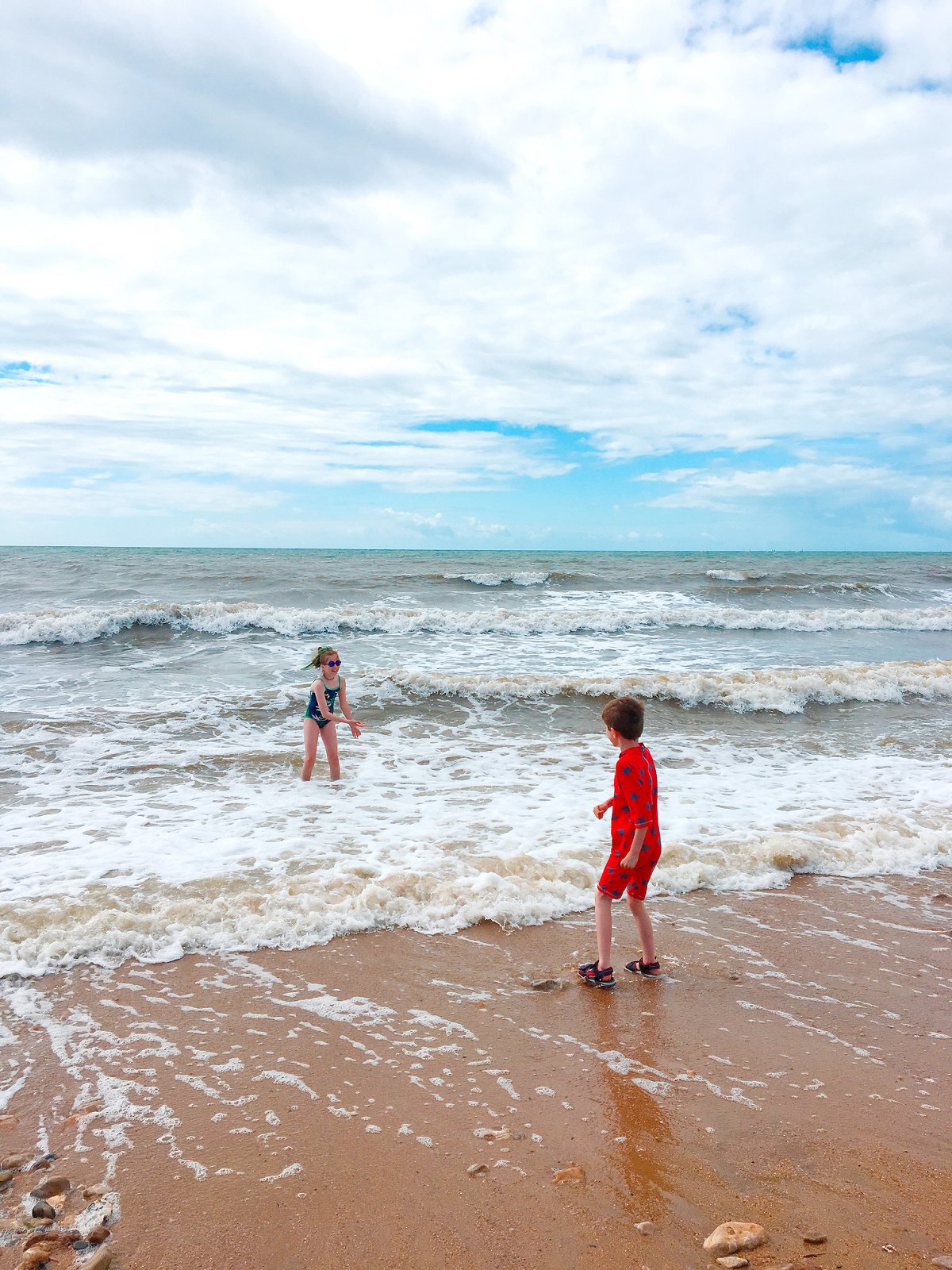I know how hard it is to take time off when you’re self-employed, but I believe it’s vital if you want to build a business that’s sustainable. Assuming everything goes according to plan, by the time this post publishes, I’ll be lounging on a beach in Thailand. As I type, it’s my last day at my desk before I down tools for a two-week holiday with my family.
Although there’s been a significant shift in recent years, busyness remains a badge of honour within the freelance community. The busiest people are considered the most successful and to be constantly sought after and in demand is the goal. When business owners describe downtime, they often talk of packing their laptop and checking emails on the go. Fellow freelancers nod in agreement, silently endorsing this unrelenting approach. The idea that we must always be working is accepted as fact when it should probably ring alarm bells.
‘Mindful engagement in leisure… renews and restores us, and it has a positive effect on our health. We’re really doing a trip on ourselves by feeling guilty about downtime, but we have to get past those feelings to restore our mental and physical health.’ – Mary Waller, Professor of Organisation Studies, York University’s Schulich School of Business.
-
Hustle and Hard Work
While building a new business, there’s definitely an intense phase when hustle and hard work is to be expected. Taking time off can genuinely feel impossible, so rest and self-care must take place in other ways.
Even during the earliest stages of your career, I think it’s a good idea to consider what you want your business to look and feel like in the future. Do you really want to work every weekend until you die? How healthy do you think you’ll be if you never take a break? What’s the point of being your own boss if you willingly work yourself into the ground?
As scary as it seems, spending time away from your desk can hugely benefit your business. Not only are rest and relaxation vital for creativity, they’re essential if you want to avoid burning out.
But how do you take time off when you’re self-employed?
-
Schedule It In
If you want to enjoy more than a long weekend away, a degree of forward planning is required. Schedule time off at the beginning of the year, mark your calendar and plan your workload around these dates.
Over time, I’ve realised how work tends to ebb and flow throughout the year. September to March is usually a very busy period for me, so it doesn’t make sense to book time off. Study last year’s diary and see if you can identify a pattern. When do your clients need you most? Take advantage of quieter months and make sure you’re energised and refreshed for your busiest season.
If you’re a parent of school age children, I’d recommend getting to grips with term dates at the beginning of the academic year. Note down all the holidays {including inset days}, decide which ones you’ll take off, and start arranging childcare for the others. If you’re feeling stuck, Val’s post about what she calls ‘the school holiday juggle struggle’ is well worth a read.
-
Plan Your Finances
The financial implications of taking time off when you’re self-employed are impossible to ignore. There’s no holiday pay, so if you aren’t working, you aren’t earning. I completely understand the complexities of this and I don’t want to be dismissive of the consequences. Freelance life is often feast or famine and I know how stressful this can be.
I try to treat time off like a business outgoing, establishing it as a cost I need to cover from the beginning of the financial year. Just as you might siphon money off to pay your tax bill or invest in personal development, I aim to create a financial buffer that’s essentially earmarked for relaxation.
Although we’ve been able to book a big trip this year, when money’s tight we holiday at home or stay with family. Switching off from work and spending time together is the main priority and they can both be achieved on a tight budget.
-
Manage Expectations
Although taking time off is about prioritising your own needs, it’s important to consider your clients too. I always communicate holiday dates well in advance. If I’m taking on a new project that might be affected, I make this clear at the outset. For clients I have an ongoing relationship with, I’ll ask them what they might need while I’m away and endeavour to provide it in advance. This might mean my pre-holiday workload is intense, but it’s always, always worth it.
Another huge barrier to taking time off as a freelancer can be fear of missing out on future work. What if your dream job lands in your inbox while you’re away? Although I can’t promise good things won’t pass you by, a killer ‘out of office’ reply could work in your favour. Direct people to previous work, encourage them to follow your travels on Instagram, and assure them your post-holiday response will be worth waiting for. If you do miss out on an exciting opportunity, remember protecting yourself from burnout now will help you achieve bigger and better things in the future.
- When did you last take some time off?
Love Audrey x



